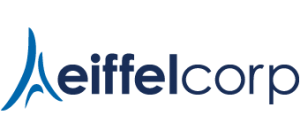Johannesburg
+27 (0) 11 234 4000

An admonition that is often levelled at education administrators is that software and hardware is purchased but nothing else is set in place to encourage the adoption of these costly items. If you want teaching staff to use technology in their teaching, administrators should model its implementation – use mobile technology to be constantly in touch with staff, post agendas, minutes via emails or online notification software. Provide professional development and adequate time for staff to get to grips with new ideas. Provide time for staff to attend elearning conferences and to also be able to show case in-house practices that are found to be useful.
Everyone likes their efforts to be recognised.
Technology is expensive to purchase and implement. It’s expensive for parents. Don’t necessarily buy the most inexpensive in the market as longevity is seldom associated with “cheap”. Look at on-going support from vendors, guarantees, licence fee structures, training costs that will give more value in the long term.
Start small and make it work. I taught at a university which found that teachers weren’t using the Smartboards that had been installed in all classrooms. The campus director was about to remove the boards because teachers failed to use them, when he made the decision to make his investment work. The director had all existing white and blackboards removed from all rooms. The result meant that teachers had no choice but to learn to use Smartboards quickly.
The scope of media, websites and information that is found on the internet is often times so interesting that students meander away from the narrow scope of what they are supposed to learn according to the lesson objectives, topics and curriculum. Collaboration, research, debate allow for conceptual development and the wealth of internet information broadens the scope of those concepts. Decisions regarding the requirements of factual recall and conceptual development need to be addressed. You don’t want an iPad for instance to become a glorified textbook!
Education managers and administration need to know what teachers are doing in regard to elearning. Strict controls and policies need to be in place to guide teachers through the challenges they face in regard to the abuse of the internet and misuse of virtual communication channels. Netiquette and plagiarism policies should be in place; educators need to know how to evaluate the credibility of websites used by students; if bandwidth is limited, social media channels could be blocked.
(Eiffel Corp — June 23, 2016) —
+27 (0) 11 234 4000
+27 (0) 21 782 2993

 APPROPRIATELY USED TECHNOLOGY LOOKS TO REDUCE UNEMPLOYMENT ACROSS AFRICA
APPROPRIATELY USED TECHNOLOGY LOOKS TO REDUCE UNEMPLOYMENT ACROSS AFRICA